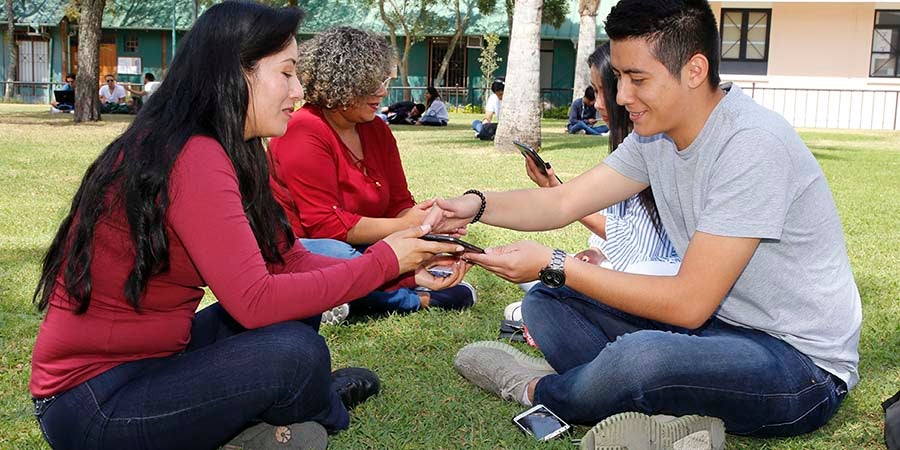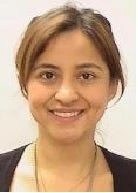 Students at university
Students at university
Changes in higher education are inevitable
Juan Carlos Mariño is the plant manager at a tuna processing factory in Manta, a vital maritime port in Ecuador. He has been looking for a food processing technologist to help him at the plant for almost two months. However, his search has been unsuccessful despite high youth unemployment in the region and having interviewed several candidates with relevant degrees. The problem lies in finding a professional who, in addition to technical skills in food processing, can also manage suppliers and operators while managing conflicts, solving problems, and communicating well with all the plant's personnel.
The development of digital technology, automation, and changes in the nature of work, has caused significant changes in international higher education, some of which reflect a broader vision for how to ensure its relevance and impact. The subject of skills development is at the center of the discussion. A recent World Economic Forum report on the future of jobs, launched in October 2020 indicates that the competencies that employers believe will be most prominent by 2025 are critical thinking, analytical skills, problem-solving skills, and skills related to self-management, such as active learning, resilience, stress tolerance, and flexibility. However, education systems do not develop these competencies systematically. Very few education programs explicitly include developing these competencies in their curricula.
Enterprise surveys consistently show that employers are not satisfied with the skills of graduates and that this deficit in the workforce is a problem for the development of a better investment climate. The World Economic Forum report also indicates that 40% of all employees in companies will need to learn new skills in the next six months that will enable them to perform in a different job within the company and that 94% of business leaders expect employees to acquire new skills on the job. These results show that what is essential for a professional is not only focused on what they know, but on their ability to learn and adapt to changing situations, technologies, and processes. Because of this, the educational policy pays increasing attention to students’ learning, competencies rather than to mastery of content. As part of these efforts, educational institutions are rolling out assessments to measure competencies, improve academic quality and relevance, and systematize skills development in high demand by employers worldwide.
The DESCAES skills assessment
Following international lessons and experiences in the field and understanding that, to learn, students must possess specific cognitive skills and personal habits, a group of 14 Mexican higher education institutions - including public and private universities, technological institutes, and polytechnic universities – created the DESCAES (Development of Competencies for Learning in Higher Education) skills assessment. The DESCAES assessment is a standardized, online test that can diagnose skills and measure competencies using task-based exercises that confront the student with real situations. The DESCAES assessment was designed with three main purposes in mind:
• Evaluate the level of competencies in three fundamental areas: communication, information management, and problem-solving – skills necessary for learning not only at the university but also in different work situations.
• To support higher education institutions in understanding, using, and developing skills to better prepare students for education, life, and work and to sustain institutional, educational decision-making.
• Establish a baseline to determine the value-added of the different educational interventions in the development of skills by educational stages and cycles.
The assessment consists of two sections. The first measures communication skills, information management, and problem-solving. The second is a metacognition and self-regulation questionnaire that evaluates the subjects’ ability to identify their learning needs and their learning strategies, recognize what they have learned, identify their ability to plan, organize and control learning activities, and reflect on their results and strategies to improve them. The assessment, then, measures the learning competencies possessed by those taking it sequentially and can estimate the value-added achieved in an educational period or process. The application of the assessment serves to collect information from a representative and systematic sample of subjects, and the analysis reveals their competency level and improvements due to the academic and pedagogical activities offered by the educational institutions. Assessment results are available by institution, career, and student. These reports allow authorities and teachers a proper diagnosis of students’ needs and the identification of institutions that need more support, which allows customizing solutions in response to different needs.
Application of the DESCAES in Ecuador
Ecuador's Secretary of Higher Education, Science, and Technology (SENESCYT), with funds from the Technical and Technological Institutes Reconversion Project, sponsored by the World Bank, decided to join international efforts to measure skills. After applying the DESCAES assessment on a national scale to 10,500 first-year students in May 2021, 61 percent of participant students showed a deficit in learning competencies (Table 1).
Table 1: APPLICATION OF THE DESCAES ASSESSMENT TO FIRST YEAR STUDENTS
Fortunately, learning competencies can improve with different academic and pedagogical interventions. Ecuador decided to focus on developing pedagogical strategies to be implemented by teachers to enhance students' competencies. Since teachers cannot improve these competencies in students unless they master them, DESCAES test was administered to all 3,053 teachers in Ecuador's Public Technical and Technological Institutes system. Results in Table 2 show that 66% performed at basic levels of competency in communications, information management, and problem-solving, and only 4% of teachers scored at an advanced level of competency in these areas.
Table 2: APPLICATION OF THE DESCAES ASSESSMENT TO TEACHERS
The education authorities and rectors of Technical and Technological Institutes will use the DESCAES assessment data to design teacher training opportunities and institutional improvement plans and monitor improvements in learning competencies. Assessment results will become a formative element of monitoring the improvements in competencies of Ecuador’s youth to increase the added value and relevance of technical and technological education in Ecuador. This effort reveals Ecuador’s commitment to design and implement data-driven policies to develop more pertinent higher education programs. The government’s vision is to use DESCAES results as well as other available data on labor demand and graduate’s transitions into employment, to develop a holistic information ecosystem to better support education institutions, especially those that need it most.






Join the Conversation